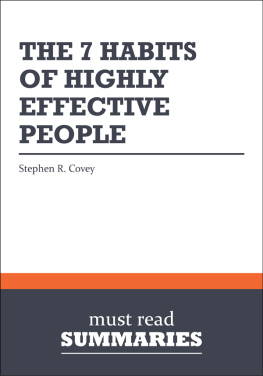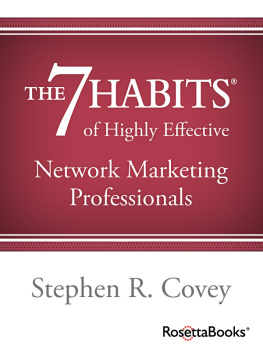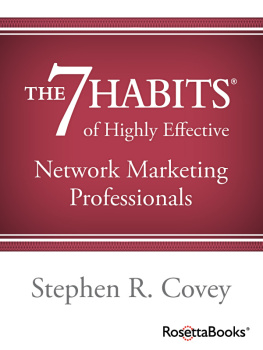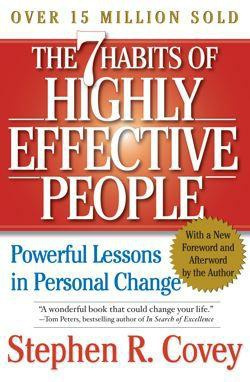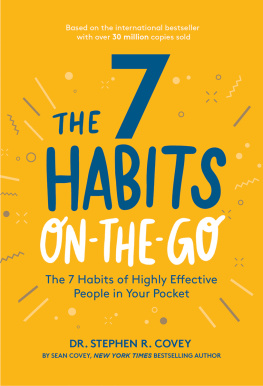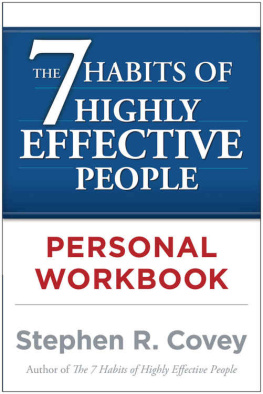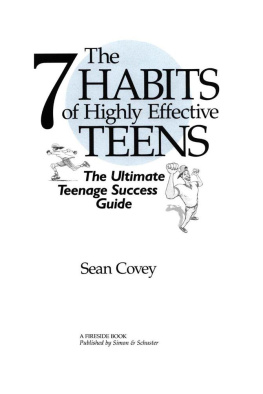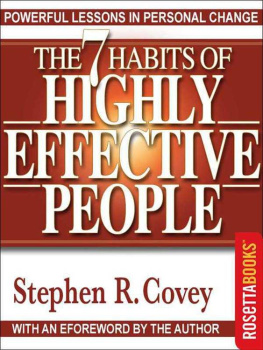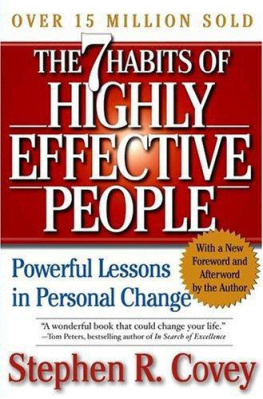Paradigms and Principles
A paradigm is the way we see and understand the world around us. It is a mental map by which we interpret the information we receive. Paradigms hold the key to our own personal interpretation of reality. Principles are guidelines for human behavior that have been proven over time to have enduring, permanent value. Our challenge is to develop paradigms for our own lives that are principle based.
Many individuals who have achieved incredible degrees of outward success find themselves struggling with an inner need for healthy, growing relationships with other people. These are the sorts of problems quick fixes cannot solve.
An academic study was recently made on how perceptions were formed, and how the way events are viewed governs behavior. This led to a study of expectancy theory and self-fulfilling prophecies. The study concluded that no matter how much a person works on their attitude, they wont change if they dont change their perceptions.
Much of the success literature of the past 50 years has been extremely superficial - filled with social image consciousness and quick-fixes. On the other hand, success literature for the previous 150 years focused on the character ethic as the foundation of success - things like integrity, humility, fidelity, justice, patience and the Golden Rule.
The character ethic taught there are basic principles of effective living, and that people can only experience true success and enduring happiness as they integrate those principles into their personal character. After World War I, the basic view of success shifted from the character ethic to the personality ethic. Success became a mere function of personality, public image, attitudes and skills. This involved public relations techniques and positive mental attitude.
Some parts of the personality ethic are clearly manipulative or even deceptive. Sometimes character was acknowledged, but it was not considered fundamental to overall success. While fleeting reference was made to it, the general approach could be described as influence techniques, power strategies, communication skills and positive attitudes.
Perhaps in building upon the foundation of generations before us, we have inadvertently become so focused on the secondary traits that we have forgotten the primary traits at the foundation. To focus on techniques alone is to miss the whole point of why the techniques are useful. In the long run, we cannot be successful if there is no actual foundation for success. It is the cramming approach to getting grades in school. In the final analysis, what we are communicates far more eloquently than anything we say or do. There are some people we trust absolutely because we know their character. Whether they are eloquent or not, or have human relations skills or not, we trust them and work successfully with them.
The seven habits embody many of the fundamental principles of human effectiveness. They represent the internalization of correct principles upon which enduring happiness and success are based. Before studying them, consider the power of a paradigm. A paradigm is like a map. It is not the actual piece of territory but is an explanation or model of a piece of territory.
Everyone carries with them mental maps of two types - the way things are and the way things should be. We often assume the way we see things is the way they really are. All our attitudes and behaviors grow out of those assumptions. They also affect the way we interact with other people. In other words, sincere, clear headed people can each see the same thing differently because each person is looking through the unique lens of their own experience.
The more anyone becomes aware of their own paradigms and the extent to which they influence their perceptions, the more that person can take responsibility for their paradigms and test them against reality and try to perceive the larger picture for a more objective view. In the book The Structure of Scientific Revolutions, Thomas Kuhn showed almost every significant breakthrough in the field of scientific endeavor is first a break with tradition, with old ways of thinking, with old paradigms.
Paradigm shifts, whether instantaneous or gradual, positive or negative affect the way we see the world, and therefore our attitudes and behaviors and relationships with other people. Thus, if we want to make changes in our lives, we can do so by focusing on our paradigms. Paradigms are inseparable from our character.
The character ethic is based on the fundamental idea that there are principles that govern human effectiveness - natural laws that are just as unchanging as laws in the physical dimension. The degree to which our own mental paradigm accurately describes the reality does not alter its existence.
True principles surface again and again in the cycles of social history. In fact, people are either moving towards survival when they live in harmony or destruction when they move away. Examples are principles such as;
- Fairness
- Integrity
- Honesty
- Human dignity
- Service
- Quality or excellence
- Human potential
Principles are not practices (specific activities that work in certain circumstances). Nor are they values (which are simply maps of principles). Seen in this light, the glitter of the personality ethic is that there is some shortcut, a get-rich-quick scheme to achieve quality of life without paying the price. It is illusory and deceptive. The way we see any problem is the problem.
The 7 Habits are a new level of thinking - a paradigm shift based on a principle-centered, character-based inside-out approach to personal effectiveness.
There is no real excellence in all this world which can be separated from right living.
David Starr Jordan
Into the hands of every individual is given a marvelous power for good or evil - the silent, unconscious, unseen influence of his life. This is simply the constant radiation of what man really is, not what he pretends to be.
William George Jordan
The significant problems we face cannot be solved at the same level of thinking we were at when we created them.
Albert Einstein
We must not cease from exploration and the end of all our exploring will be to arrive where we begun and to know the place for the first time.
T. S. Eliot
The Seven Habits - An Overview
The 7 habits provide an incremental, sequential, integrated approach to the development of personal effectiveness movingus progressively from dependence (on others) to independence (take care of ourselves) to interdependence (looking after others and combining strengths).
Our character is basically a composite of our habits. Habits are powerful factors in our lives because they express our character and produce our effectiveness. A habit can be defined as the intersection of knowledge (the what to do), skill (how to do it) and desire (the motivation to do it). We need all three to form a habit. Happiness can be defined as the fruit of the ability to sacrifice what we want now for what we want eventually. True independence of character empowers us to act rather than be acted upon. However, life is, by its very nature, highly interdependent. Much more can be achieved through interdependence. It opens the opportunity to share meaningfully with others, and provides access to the vast resources and potential of other people. You cant be effectively interdependent until you are truly independent.
- Habits 1,2 and 3 deal with self-mastery or private victories and lay the foundation for other habits.
- Habits 4,5 and 6 deal with the public victories.
- Habit 7 is the habit of renewal of the four basic dimensions of a meaningful life.

